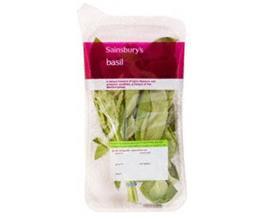
Major Thai exporters have appealed to their government to allow them to continue shipping key vegetable lines to Europe in the wake of a self-imposed ban.
Earlier this week, Thailand’s Department of Agriculture announced that it would suspend exports of five types of vegetables to Europe with effect from 1 February. The pre-emptive move is aimed at warding off a formal EU ban on the products that would be harder to lift and hurtful to the image of Thai produce.
The ruling affects five product groups, including chillies, capsicums, Thai eggplants, bitter gourds and parsley. EU food safety authorities threatened a ban on the categories in December following persistent findings of pests and excessive chemical residues.
The Thai government believes that suspending shipments will buy vital time for it to boost quality controls and introduce other measures to solve the problems. But many industry figures feel the move is too indiscriminate and thereby penalises professional exporters that have not breached any standards.
Thailand’s Department of Agriculture (DoA) yesterday held a meeting to inform exporters of its plans to declare a temporary ban, but the Board of Trade of Thailand/Thai Chamber of Commerce has issued a formal letter to the Ministry of Agriculture to seek special concessions for some exporters.
“The Board of Trade of Thailand has written to the Ministry of Agriculture to support this action `the self-imposed ban` as a long-term solution but only on the condition that the DoA gives permission for the reliable exporters to keep exporting these products to the EU,” Chusak Chuenprayoth, vice chairman of the Food and Agriculture Committee of the Thai Chamber of Commerce told Fruitnet.com.
“The matter is an issue to be dealt with immediately by higher government levels. The Board of Trade of Thailand will wait a few days for their reaction before making a press statement."
The Chamber wants the government to allow exporters with no record of breaching food safety requirements to continue shipping these products to the EU.
“At the end of the day, there are exporters doing the right thing and those doing wrong,” said Veera Likanasudh of leading shipper Koerner Agro. “We are all being lumped together. Is that fair?”
Persistent pest issues with the five vegetable categories have become a bugbear for EU food safety authorities in recent times.
After an audit visit to Thailand last April, the EU Food and Veterinary Office (FVO) produced a report to express its dissatisfaction with the procedures in place for tackling the pest issues.
In December, EU food safety authorities notified Thailand that inspectors had found white flies, thrips and leaf miners on the vegetables and threatened to issue a ban if nothing was done by 15 January, when food safety authorities will meet in Brussels. While the insects are reportedly common in Thailand, they are not found in the EU, where they could pose a significant threat to producers.
The Thai government has proposed that the EU send its officials to work with Thai agencies on quality control procedures, but some industry sources warn that it is very challenging for Thailand to eradicate such pests in its tropical growing environment.
“The conditions are different between Thailand and Europe,” said Mr Likanasudh. “I am not saying vegetables can have insects crawling over them but there should be tolerances. At the moment, one insect and you won’t get the phyto and the product has to be taken off the shipment.”
The EU Commission is scheduled to review Thailand’s proposal at the end of this month, but exporters warn that a blanket suspension of shipments would come at a significant cost. Exports of the five vegetable groups currently garner an estimated Bt738m per year (US$24m) in revenue, according to local media reports.



